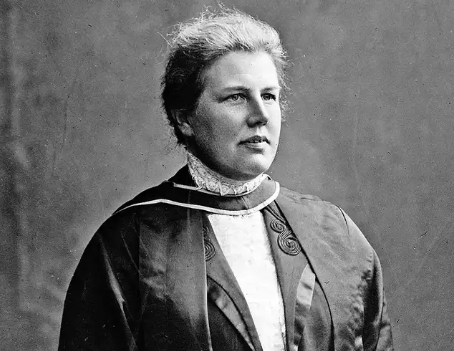

Louisa Aldrich-Blake was a first British woman Surgeon and physician to enter the world of medicine and to hold the post of the surgical registrar and also acted as an anesthetist.
Louisa Aldrich-Blake is best known for being the first British women Surgeon and physician to enter the world of medicine and to hold the post of the surgical registrar and also acted as an anesthetist around 1894.
Doctor Louisa Aldrich-Blake was born1 on August 5, 1865, in Chingford, Essex, the UK to Revd. Frederick James Aldrich-Blake and Louisa Blake Morrison. She moved with her family to Welsh Bicknor in Herefordshire during her childhood and resided in the town until her death on 28 December 1925. Further information regarding her parent's background and siblings is not available. Louisa gained her school education at Cheltenham Ladies' College. She graduated with first-class honors from the London School of Medicine for Women by 1894 as a Bachelor of Science, Bachelor of Medicine and an MD. Upon graduating from the University of London Aldrich-Blake followed with a master's in surgery a year later. She went on to take the University of London's higher degrees in Medicine and Surgery, becoming the first British woman to obtain the degree of Master of Surgery.
Dr. Louisa Aldrich-Blake began working at the New Hospital for Women and Children in London around 1894. Shortly after she became the lead surgeon while also working at the city's Royal Free Hospital. She was the first woman to hold the post of the surgical registrar in 1895 and also acted as an anesthetist. During the First World War, many of the surgical staff were deployed on foreign active service and Dr. Aldrich-Blake took on increased responsibility for the surgery, becoming a consulting surgeon to the hospital in between 1914 to 1916.
Aldrich-Blake was the first to perform operations for cervical and rectal cancers. She led the British surgeons in taking on the Wertheim operation for carcinoma of the cervix. Aldrich-Blake contributed a piece to the Practitioner's Encyclopedia of Midwifery and Diseases of Women named "Pain as a symptom of pelvic trouble" and a piece on "Abdominoperineal excision of the rectum by a new method" in the British Medical Journal in 1903. She held a chair position as a vice-president of the Section of Obstetrics and Gynaecology in 1924 that was a part of the British Medical Association. Her position as a consulting surgeon at the Royal Free Hospital started in 1919 and ended when she died in 1925. She also worked at the Canning Town Women's Settlement Hospital.
In the year of her death, Aldrich-Blake was named a Dame Commander of the Order of the British Empire on the New Year's Honours List in 1925. The Dame Louisa Brandreth Aldrich-Blake Collection is located in the Royal Free Hospital's Archives Centre. A statue of her is in Tavistock Square, London. In 2019, she was acknowledged with a Google Doodle for the UK, Ireland, Canada, Australia, New Zealand, Israel, Bulgaria, Sweden, Denmark, Estonia, and Iceland on the 154th anniversary of her birth. She became Vice-Dean in 1906 and Dean of the School in 1914 at the London School of Medicine for Women.
Information regarding her net worth, salary, houses, cars, businesses, and their worths are not available to public media till this date.
Louisa Aldrich-Blake's personal life regarding her family, husband and children are not available till this date.
No any measurements regarding Louisa's height, weight, the body size is available.
Louisa Aldrich-Blake's time was far off from today's social media like Facebook, Twitter, and Instagram.
Although she had a professional practice, Aldrich-Blake never received a sizeable salary for her work. Dame Louisa Aldrich-Blake died on 28 December 1925 from cancer. Aldrich-Blake passed away at home after having undergone several operations during her last weeks. St. Pancras Church, in London, celebrated her life on 1 January 1926 and her ashes were transferred back to her home in Welsh Bicknor.